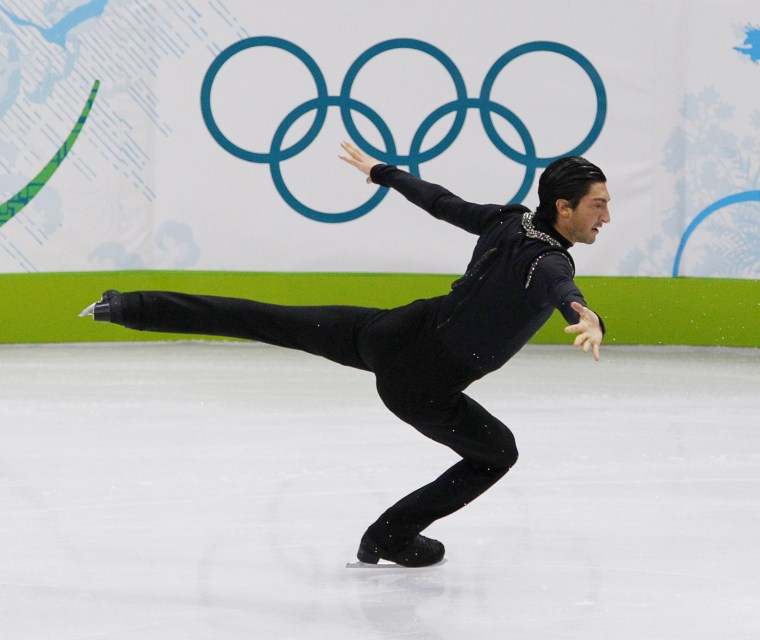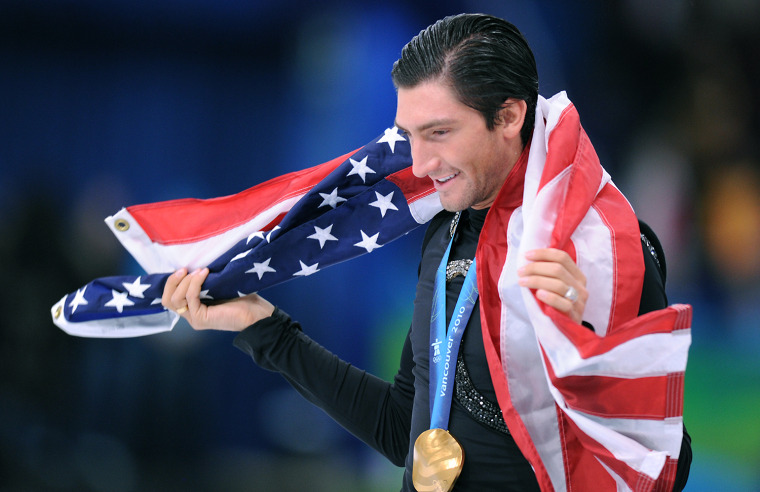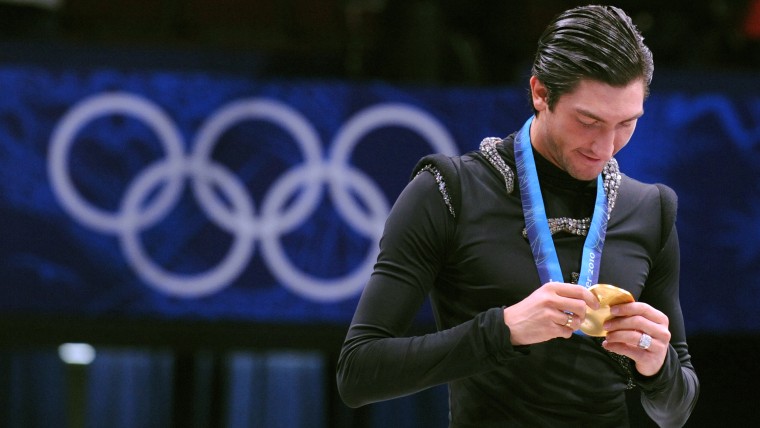Olympic champion Evan Lysacek is a special correspondent for TODAY in Sochi. In this essay for TODAY.com, he reflects on the role of rituals in his competitive life.
My entire life is a series of rituals. Some of them stem from superstition and some stem from spirituality. Consistency is a crucial part of succeeding as a figure skater. It is a sport steeped in discipline, precision, and perfection. At times, it is extremely difficult to process the physical and mental control that figure skating demands. That is when ritualistic behavior begins. Because, let’s face it: you’re really not in control. If there’s a rut in the ice, you’ll slip and that’s it. If your heel gets too close to an edge, that’s it. You can’t let your mind go to that place, so instead, you control everything you can.
For me, competition readiness is about sending a message to my body that it needs to be ready for the absolute peak of physicality. I've found that familiarity is key to my body kicking into "high gear." I drink the same protein shake, listen to the same music, execute the same warm up routines, all to stimulate my senses into knowing it's game time.
The music I listen to is mainly my competitive music over and over. I found that at times of high anxiety, when the arena is dead silent and the only sound you hear is your own heart thumping, the first few notes of my program music would startle me. By listening to it over and over again, I become desensitized to the magnitude of the music but at the same time feel harmonized to its melody and tempo.

My true ritualistic behavior is magnified on competition days. I can execute my off-ice warm-up exercises with incredible precision. I will sit in the exact same seat in the locker room every time. I have to be facing the ice. I have to have my gym shoes facing the ice. Even the hangers holding my competition suits must be facing the ice. I always tie my left skate first, making sure that I have knotted it three times and secured my pant hook to the seventh lace cross from the bottom. I must carry an odd number of items out to the ice with me. If I have an even number of necessities, I will often grab a completely random object to carry out with me just to satisfy that ritual.
How athletes' weird rituals can actually help them win
Once I step on the ice, I skate the same patterns to get warmed up as I do every single day. Same order, same rhythm. This is just a very small glimpse into the ritualistic tendencies that I have. There are many many more in addition to these, however they have been so ingrained into my daily life that I don't even notice myself doing them.

Figure skating, one of the most misunderstood and easily mocked sports, is so technical and difficult that if you're off by even the smallest margin, the effect can by disastrous. The danger of skating tricks is never really addressed on television, and the training is so grueling and repetitious, that most people just think skating looks easy.
But anyone who's ever tried to skate — not even figure skate, but just skate — can tell you how challenging it is. To achieve success in this sport, you must be as close to complete mental control as possible. That is why superstitions and rituals are so prevalent in skating. Controlling those extraneous aspects of one's life allows the mind to relax and feel in control.
Of course, these are all just my own findings and methods. Another skater may have a completely different take on what prepares them for that all important moment. The Olympic moment.
